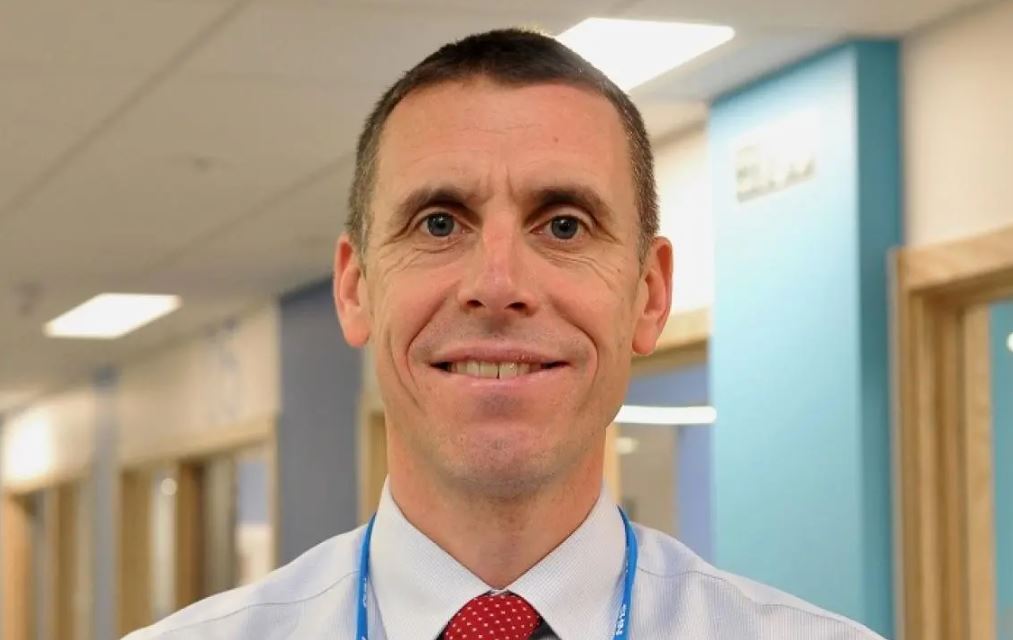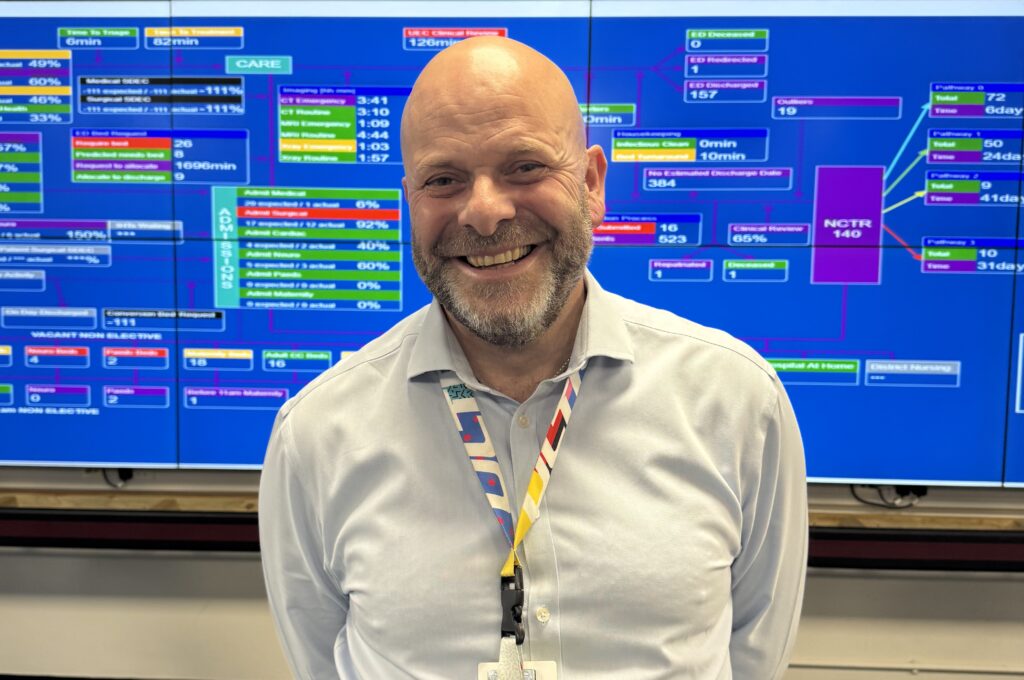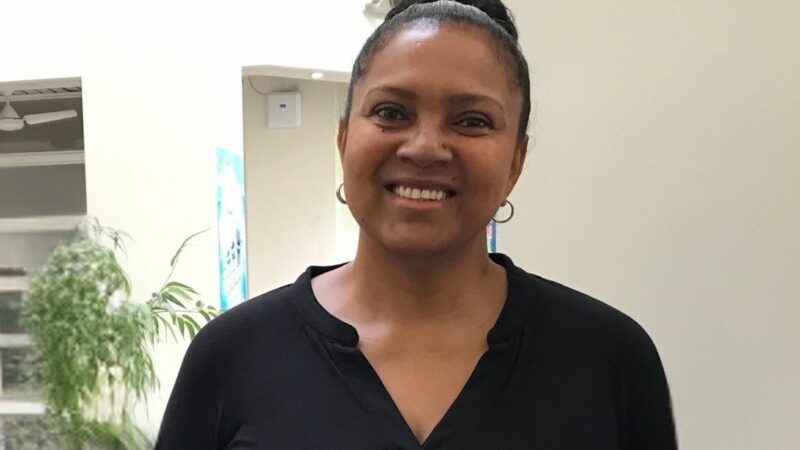There are 100s of things the NHS and social care organisations in south West London are doing to help people stay well this winter – we’re sharing 10 points from the winter plan.
One of these 10 points is ‘getting patients home quickly and safely’ – making someone’s journey as smooth as possible when they have to stay in hospital. This includes the whole journey – from how someone arrives at hospital, receives treatment and then returns home when they’re well enough.
Council reablement teams support people in the return home. Irma Sango, reablement officer in Merton explains: “For us it’s all about enabling someone to regain their independence and stay living at home for as long as possible”. People are referred to the service before they are discharged from hospital. Visits can last for up to six weeks in a continual process of assessment, as people grow in independence, and connect to occupational therapy and physio.
She describes a typical first visit. “Once you’re in the home, that’s when the happiness starts. You have a chat, make a cup of tea. We call it a ‘settle in visit’. That’s our purpose, to see how they are and check that the environment is clean and there are no hazards.”
Once you’re in the home, that’s when the happiness starts. You have a chat, make a cup of tea. We call it a ‘settle in visit’.
Merton Council reablement officer Irma Sango (pictured above)
Matthew Kershaw, Chief Executive at Croydon Health Services, explains why people being supported at home when they’re well enough is critical to hospitals running well: “We spend an extra £13 million across health and care services in south west London each winter to support our residents during this busy period. £4.5 million of this funding enables us to care for people in hospital general and acute beds across our four hospitals.
“These beds are almost always full, supporting 7,000 patients each month, and at any given time around 300 people are well enough to go home.”

Matthew is also the joint south west London lead for urgent and emergency care, leading fortnightly meetings between the leaders at each hospital and partner organisations across the geography to focus on working together to find joint solutions to a growing list of challenges.
He explains why reducing the amount of time people spend staying in hospitals is such a priority: “Our staff are driven by caring for people and they know that as soon as people are well enough, their recovery speeds up outside of our hospitals.
Reducing ‘length of stay’ in hospital requires all the different NHS and social care services to work together. It’s only through teamwork that we can shift the dial – no one service can achieve it alone.
Chief Executive at Croydon Health Services, Matthew Kershaw
“Reducing ‘length of stay’ in hospital requires all the different NHS and social care services to work together. It’s only through teamwork that we can shift the dial – no one service can achieve it alone, we have to link together seamlessly.”
The number of different initiatives which have been put in place reflect the number of organisations involved – including a hyper-focus within hospitals to track ‘length of stay’ for every person who’s admitted, adapting care at every step to bring the time down. For example, when they are first assessed in the Emergency Department, the decisions made have a huge impact.

St George’s Hospital is running a new system which sees every patient journey constantly tracked through a mega digital dashboard akin to the London Underground map. Suitably named the St George’s line, it is monitored 24/7 by a team of people working closely with wards and services across the hospital.
We can see how many patients are in beds, waiting times for tests and where the pinch points are slowing down a patient’s journey through our hospital.
Darren Foskett, General Manager for Intergrated Operations
Paramedic and General Manager for Intergrated Operations, Darren Foskett, says: “The St George’s line shows what it is happening across the hospital in real time, we can see how many patients are in beds, waiting times for tests and where the pinch points are slowing down a patient’s journey through our hospital.
“St George’s is regularly at 98% capacity for general and acute beds, so all of our staff need to be focused on how people are flowing smoothly in and out of our doors. Having live information which is monitored constantly enables the right conversations to happen, without delay.
“For example, as soon as patients have been assessed as well enough to be discharged, a different team can kick start plans which should already in place with social care teams to arrange care to help people get back home or to a care home.”
Epsom and St Helier Hospitals are making positive changes to reduce the average length of stay through their partnership approach to supporting people who have been in hospital longest. By bringing consultants, nurses, social care, primary care and voluntary sector representatives together to discuss individual cases, weeks are being shaved off people’s hospital stays – which is better for recovery as well as flow within the hospital.
Building on a pilot at St Helier, hospitals will soon have access to a fund this winter which can be used for small one-off payments to support individual patients, to speed up discharge. This includes St George’s, Epsom and St Helier, Kingston and Croydon – as well as mental health trusts South West London and St George’s and South London and Maudsley.
We provide a gift of a dressing gown, a food parcel on arrival home with food they like. We do some cleaning of their property to make it suitable, purchase heaters, if necessary, and many other things.
Rise+ scheme director of services, Debbie Thwaites
Jo Carr, Clinical Manager for Sutton Health and Care Reablement Unit at St Helier explains: “Quite often people are unable to go home for minor reasons – no key safe or spare keys for care staff to use, no microwave for meal or bedding – or something as simple as moving furniture around to make space. Being able to quickly fix these issues mean fewer days in hospital, freeing up beds for those that need them more.”
The voluntary sector also plays an important part in making sure people are safe and comfortable when it’s time for them to come home. In Wandsworth, the charity Regenerate Rise supports hospitals including St George’s through its Rise+ scheme. Director of services, Debbie Thwaites leads the team visiting the wards.
She said “We start by getting to know the Wandsworth residents who are nearly ready to leave and talking to the nurses and occupational therapists to find out what help they might need. When they are on the ward we find out what they like and build up a relationship, so they trust and recognise us. Our team can then ensure everything is in place for their discharge.
“We provide a gift of a dressing gown, a food parcel on arrival home with food they like. We do some cleaning of their property to make it suitable, purchase heaters, if necessary, and many other things. Along with daily visits, this ensures the patient settles at home with everything they need to keep warm and avoid readmission to hospital.”
Our support includes help at home, a handyperson service, social prescribing and advice. We also offer some free practical support – from waiting in for deliveries to help with medical appointments and transport.
Shane Brennan, CEO, Staywell
In Kingston, the charity Staywell, formally known as Age Concern Kingston, supports patients around discharge.
Shane Brennan, CEO, said: “We know that many people and their carers worry about how they will manage at home. Our Home from Hospital service supports clients to prepare for their return to home. Our support includes help at home, a handyperson service, social prescribing and advice. We also offer some free practical support – from waiting in for deliveries to help with medical appointments and transport.”
